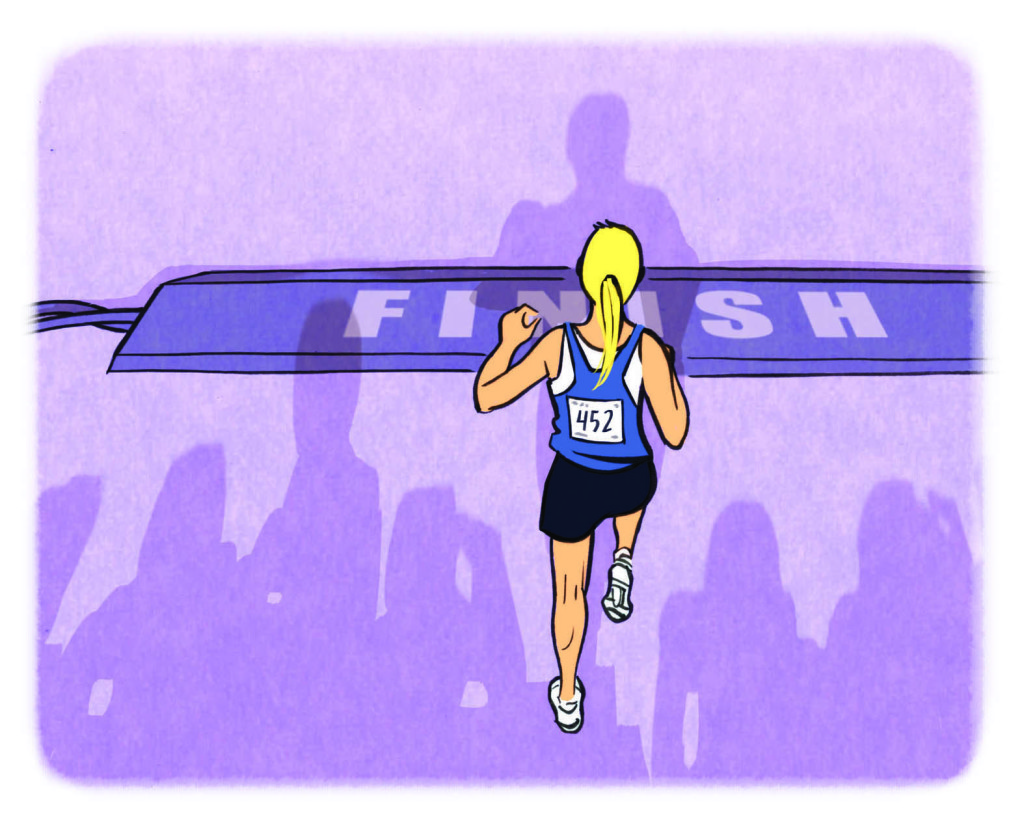Ten marathon taper questions answered
A marathon taper is a gradual reduction in total training volume in the final few weeks before race day. Its purpose: to improve performance

What exactly is tapering anyway?
Tapering is basically a steady decrease in total training volume–mostly mileage–in the last few weeks before your goal race. This allows the body (and mind) to rest and recover before race day.
I’m not a pro, do I really need to taper?
Yes. Regardless of how fast you are or how long you’ve been training, tapering for a marathon is always a good idea and can help any runner improve their performance. It’s a way for your body to recover from a long, hard season of training without losing fitness. If you’ve accumulated some pesky aches and pains from grinding out all those K’s, the taper is just what you’ll need to run a strong goal race.
How long is a proper taper?
Unfortunately, the taper is not a one-size-fits-all concept. When tapering for a marathon, generally, the shortest taper should be no less than 7-10 days, with the longest period lasting about three weeks. Most runners opt for about a two-week taper where they gradually decrease their mileage leading up to race day.
Should I still do workouts?
Yes. Tapering is mostly a reduction in training mileage, but not intensity. If you typically do a mid-week workout, still do something–such as a tempo or speed work–in week one of your taper. The only change you should make is reducing the overall duration and top-end intensity of that run. Consider running one or two fewer intervals or cut-back the tempo by 20 per cent. The goal of the taper is to boost confidence while reducing the total stress on your body by allowing it to fully recover by the time race day arrives.
It’s also wise to modify your workout the week of your marathon to something short and confidence building, like a (3-6K) marathon-pace tempo or short (K or mile) repeats slightly faster than race pace. This will help you feel fresh and fast without leaving you feeling tired or frustrated when you’re done your last workout of the season.
When should I do my last long run?
Your last big, meaty long run should be about three weeks before your goal marathon. Two weeks before race day, do a medium long run, reducing the volume by about 30 per cent from your longest long run. For most people, this will mean a run of about 20-24K. One week before the race just run easy for about 15-18K.
I feel like I’m losing fitness! Is this true?
Welcome to the most difficult phase of marathon training: “taper madness.” In just a couple of days, you’ll go from feeling incredible and invincible to being convinced you’ve lost the ability to run. But not to worry, it’s all in your head. Studies have shown that a proper taper will actually improve your race performance (by about five per cent), versus trying to add more training in those crucial last couple of weeks. Think of the entire taper as the hardest workout you’ll do all season. Stay focused and stick to your plan.
How do I combat taper madness?
The biggest challenge during the taper is staying positive. As race day approaches, doubt will inevitably creep in. A great way to counter the fear of failing when the gun goes off is to actually practice being positive. During your easy runs in the last couple of weeks, visualize the finish line of your race, with you crossing the finish line feeling strong and happy. If you’ve got a time goal in mind, picture the clock with that number appearing as you finish. Also, develop a mantra. Something you can say to yourself when the going gets tough that will keep you focused and put the race into greater context. After all, you are choosing to do this and it’s supposed to be fun.
Should I taper for a half-marathon or a 10K?
A big, multi-week taper is reserved for the marathon, but it’s not a bad idea to also consider incorporating a short taper into any half-marathon or 10K training plan. The week of the race, reduce your mileage by at least a third, and much like with the marathon, make your last workout something manageable and confidence building.
What am I going to do with all this spare time?
Marathon training can be all-consuming. Many runners find it oddly challenging to back off the mileage and fill the time with, well, the rest of life. See tapering as a time to celebrate a season of successful training. Stick to your tapering plan and don’t run too hard or too long, no matter how good it feels at the time. Also, now is not the time to try new things. It’s tempting to try to shoe-horn in that core work that you’ve been neglecting all season long, or tackle some cross-training. Taking on new activities will cause fatigue to new muscle groups and require added recovery. Now is the time to relax and enjoy the rest. There will be plenty of heavy lifting to do come race day.
When should my last workout be before my goal race?
Again, there’s much debate about the benefits and pitfalls of a race week workout. As a rule of thumb, keep your last workout at least four days out from your big race, and scale back the overall volume by about half of what you’re used to doing. Also, don’t go any faster than goal race pace. Instead, use this last workout to remind you of how fit you truly are. Ease into the workout by doing the first few minutes of tempo or the first interval at a pace that feels very doable, then work your way up to goal pace and stay there.
In truth, opting out of a race week workout entirely is probably not a bad idea. It will have little to no effect on your fitness level. The hay is in the barn, as they say.
Should I run the day before the marathon?
Some think it’s crazy to lace up the day before the race, while others find that it calms the nerves to do a few shake-out K’s on the morning before marathon day. In truth, a 20-minute run 24 hours before a marathon probably isn’t going to hurt, but it’s also not going to help (physically that is). Some will say that it’s better to be safe than sorry and to stay off your feet, carb load like mad and conserve your energy for the main event. Others need to get out and do something, anything. It might be wise to make that a 20-minute walk, but if you must run, go for it.



